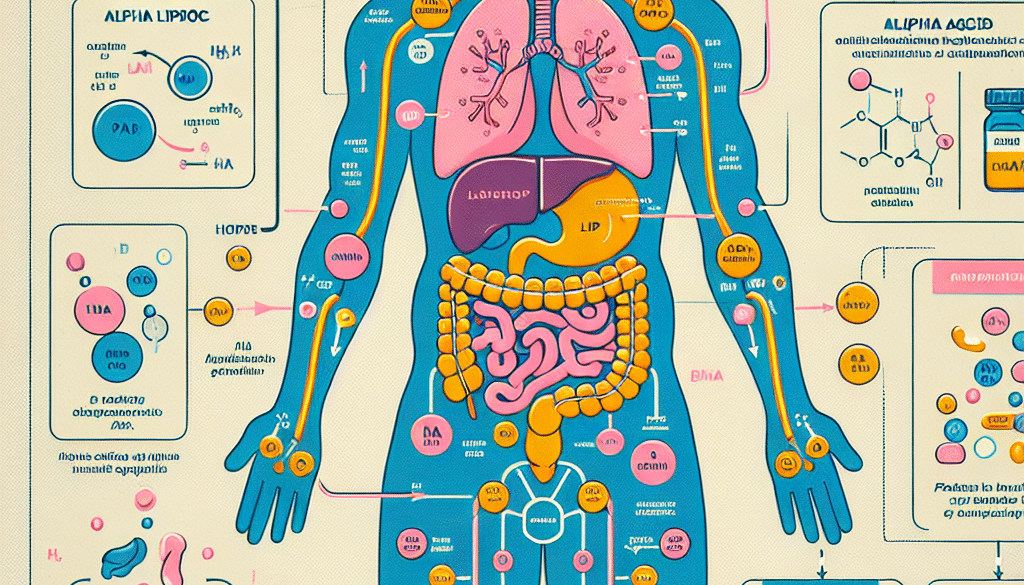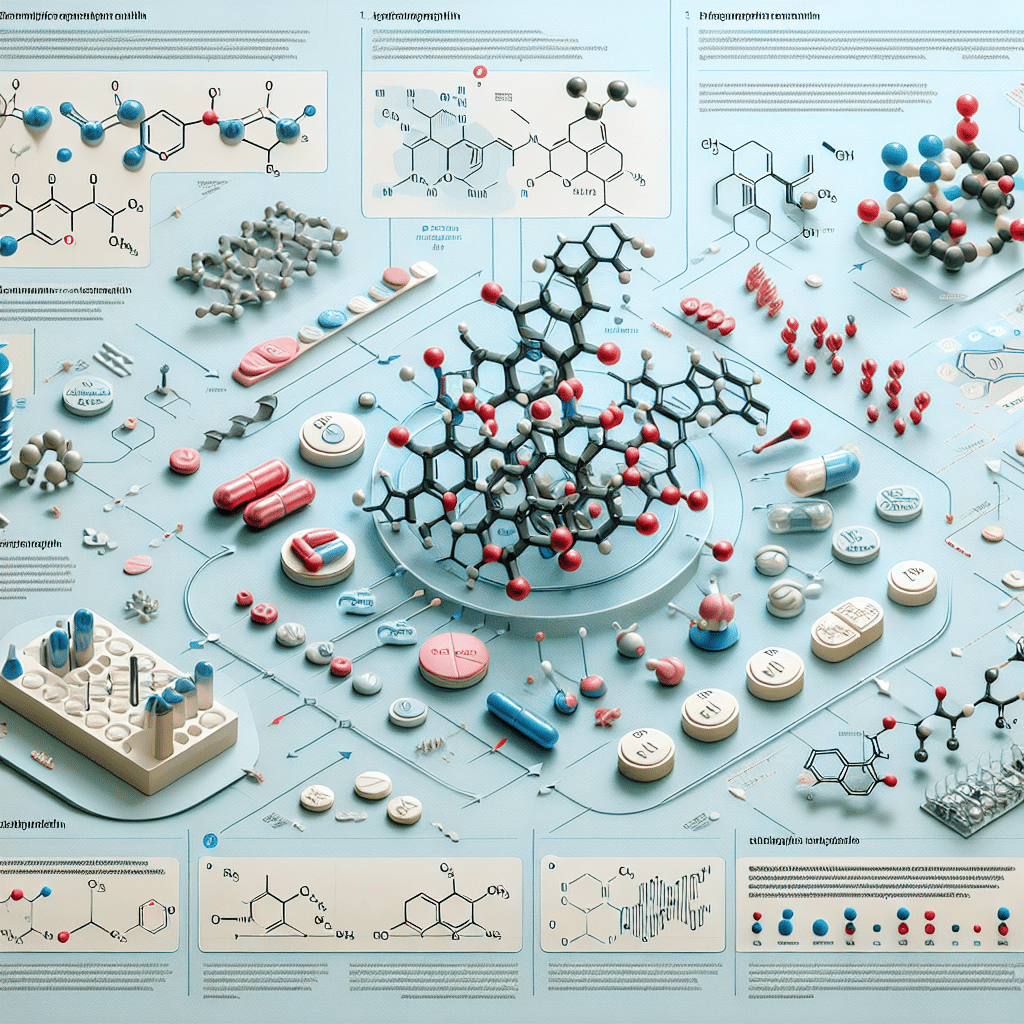Alpha Lipoic Acid Drug Interactions Explained
-
Table of Contents
- Alpha Lipoic Acid Drug Interactions: A Comprehensive Guide
- Understanding Alpha Lipoic Acid
- Common Uses of Alpha Lipoic Acid
- Potential Drug Interactions with Alpha Lipoic Acid
- Interactions with Diabetes Medications
- Interactions with Chemotherapy Drugs
- Interactions with Thyroid Medications
- Interactions with Vitamin B1 (Thiamine)
- Case Studies and Research on ALA Interactions
- Best Practices for Supplementing with Alpha Lipoic Acid
- Conclusion: Navigating Alpha Lipoic Acid Interactions
- Discover ETchem’s Protein Products
Alpha Lipoic Acid Drug Interactions: A Comprehensive Guide
Alpha Lipoic Acid (ALA) is a naturally occurring compound that’s vital for cellular energy production and has powerful antioxidant properties. It’s used as a supplement for various health benefits, including managing diabetes, promoting weight loss, and improving nerve function. However, like any other supplement or medication, ALA can interact with other drugs, potentially altering their effects. Understanding these interactions is crucial for ensuring safe and effective use of ALA supplements. This article delves into the intricacies of Alpha Lipoic Acid drug interactions, providing valuable insights for healthcare professionals and patients alike.
Understanding Alpha Lipoic Acid
Before exploring the drug interactions, it’s important to understand what Alpha Lipoic Acid is and how it functions in the body. ALA is both water and fat-soluble, which allows it to work in every cell or tissue in the body. The primary role of ALA is to help convert glucose into energy during cellular respiration. Additionally, its antioxidant properties help neutralize free radicals, protecting cells from damage.
Common Uses of Alpha Lipoic Acid
- Managing diabetes and improving insulin sensitivity
- Reducing symptoms of peripheral neuropathy
- Supporting weight loss efforts
- Protecting against oxidative stress and cell damage
Potential Drug Interactions with Alpha Lipoic Acid
When taking ALA, it’s essential to be aware of its potential interactions with other medications. These interactions can either diminish the effectiveness of the drugs or enhance their effects, sometimes leading to adverse outcomes.
Interactions with Diabetes Medications
ALA has been shown to improve insulin sensitivity, which can affect blood sugar levels. This means that when taken with antidiabetic drugs, it can potentiate their effects, potentially leading to hypoglycemia (low blood sugar). Patients on medications like metformin, sulfonylureas, or insulin should monitor their blood sugar levels closely when taking ALA supplements.
Interactions with Chemotherapy Drugs
Some studies suggest that ALA may interfere with the action of certain chemotherapy drugs. Its antioxidant properties can theoretically protect cancer cells from the oxidative damage these drugs are designed to inflict. Patients undergoing chemotherapy should consult their oncologist before taking ALA supplements.
Interactions with Thyroid Medications
ALA might also affect thyroid hormone levels and could interact with thyroid medications like levothyroxine. It’s advised to maintain a gap of several hours between taking ALA supplements and thyroid medications to prevent potential interactions.
Interactions with Vitamin B1 (Thiamine)
ALA could potentially lower thiamine levels in the body, which is particularly concerning for individuals with a deficiency or those with conditions like alcoholism that can deplete thiamine. Supplementation with vitamin B1 may be necessary when taking ALA.
Case Studies and Research on ALA Interactions
Research on ALA interactions is ongoing, with several studies highlighting the need for caution. For instance, a study on the interaction between ALA and antidiabetic drugs showed a significant drop in blood sugar levels, necessitating adjustments in medication dosages. Another study on cancer treatment suggested that ALA might reduce the effectiveness of certain chemotherapy drugs, although more research is needed to confirm these findings.
Best Practices for Supplementing with Alpha Lipoic Acid
- Consult with a healthcare provider before starting ALA supplements, especially if you’re on medication.
- Monitor blood sugar levels closely if you have diabetes and are taking ALA.
- Keep a time gap between taking ALA and thyroid medications or vitamin B1 supplements.
- Be cautious about using ALA during chemotherapy until more research is available.
Conclusion: Navigating Alpha Lipoic Acid Interactions
In conclusion, while Alpha Lipoic Acid offers numerous health benefits, it’s crucial to be aware of its potential interactions with other drugs. By understanding these interactions and following best practices, patients and healthcare providers can ensure the safe and effective use of ALA supplements. Always consult with a healthcare professional before adding any new supplement to your regimen, particularly if you have existing health conditions or are on medication.
Discover ETchem’s Protein Products
If you’re looking for high-quality protein products to complement your health regimen, consider exploring ETchem’s offerings. Their extensive range of collagen products, including marine, fish, bovine, and chicken collagen, caters to various needs and preferences. ETchem’s commitment to quality and customer satisfaction makes them a top choice for protein supplements.
About ETChem:
ETChem, a reputable Chinese Collagen factory manufacturer and supplier, is renowned for producing, stocking, exporting, and delivering the highest quality collagens. They include marine collagen, fish collagen, bovine collagen, chicken collagen, type I collagen, type II collagen and type III collagen etc. Their offerings, characterized by a neutral taste, instant solubility attributes, cater to a diverse range of industries. They serve nutraceutical, pharmaceutical, cosmeceutical, veterinary, as well as food and beverage finished product distributors, traders, and manufacturers across Europe, USA, Canada, Australia, Thailand, Japan, Korea, Brazil, and Chile, among others.
ETChem specialization includes exporting and delivering tailor-made collagen powder and finished collagen nutritional supplements. Their extensive product range covers sectors like Food and Beverage, Sports Nutrition, Weight Management, Dietary Supplements, Health and Wellness Products, ensuring comprehensive solutions to meet all your protein needs.
As a trusted company by leading global food and beverage brands and Fortune 500 companies, ETChem reinforces China’s reputation in the global arena. For more information or to sample their products, please contact them and email karen(at)et-chem.com today.





